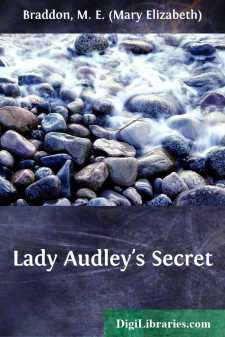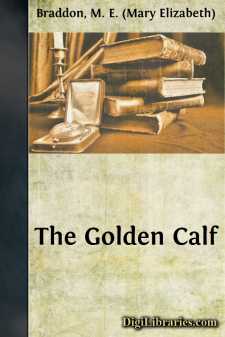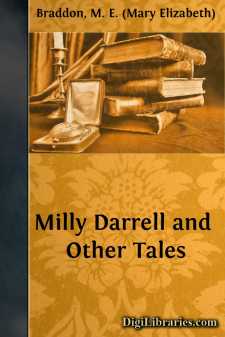Categories
- Antiques & Collectibles 13
- Architecture 36
- Art 48
- Bibles 22
- Biography & Autobiography 813
- Body, Mind & Spirit 142
- Business & Economics 28
- Children's Books 16
- Children's Fiction 13
- Computers 4
- Cooking 94
- Crafts & Hobbies 4
- Drama 346
- Education 46
- Family & Relationships 57
- Fiction 11829
- Games 19
- Gardening 17
- Health & Fitness 34
- History 1377
- House & Home 1
- Humor 147
- Juvenile Fiction 1873
- Juvenile Nonfiction 202
- Language Arts & Disciplines 88
- Law 16
- Literary Collections 686
- Literary Criticism 179
- Mathematics 13
- Medical 41
- Music 40
- Nature 179
- Non-Classifiable 1768
- Performing Arts 7
- Periodicals 1453
- Philosophy 64
- Photography 2
- Poetry 896
- Political Science 203
- Psychology 42
- Reference 154
- Religion 513
- Science 126
- Self-Help 84
- Social Science 81
- Sports & Recreation 34
- Study Aids 3
- Technology & Engineering 59
- Transportation 23
- Travel 463
- True Crime 29
John Marchmont's Legacy, Volume I (of 3)
Description:
Excerpt
CHAPTER I.
THE MAN WITH THE BANNER.
The history of Edward Arundel, second son of Christopher Arundel Dangerfield Arundel, of Dangerfield Park, Devonshire, began on a certain dark winter's night upon which the lad, still a schoolboy, went with his cousin, Martin Mostyn, to witness a blank-verse tragedy at one of the London theatres.
There are few men who, looking back at the long story of their lives, cannot point to one page in the record of the past at which the actual history of life began. The page may come in the very middle of the book, perhaps; perhaps almost at the end. But let it come where it will, it is, after all, only the actual commencement. At an appointed hour in man's existence, the overture which has been going on ever since he was born is brought to a sudden close by the sharp vibration of the prompter's signal-bell; the curtain rises, and the drama of life begins. Very insignificant sometimes are the first scenes of the play,—common-place, trite, wearisome; but watch them closely, and interwoven with every word, dimly recognisable in every action, may be seen the awful hand of Destiny. The story has begun: already we, the spectators, can make vague guesses at the plot, and predicate the solemn climax; it is only the actors who are ignorant of the meaning of their several parts, and who are stupidly reckless of the obvious catastrophe.
The story of young Arundel's life began when he was a light-hearted, heedless lad of seventeen, newly escaped for a brief interval from the care of his pastors and masters.
The lad had come to London on a Christmas visit to his father's sister, a worldly-minded widow, with a great many sons and daughters, and an income only large enough to enable her to keep up the appearances of wealth essential to the family pride of one of the Arundels of Dangerfield.
Laura Arundel had married a Colonel Mostyn, of the East India Company's service, and had returned from India after a wandering life of some years, leaving her dead husband behind her, and bringing away with her five daughters and three sons, most of whom had been born under canvas.
Mrs. Mostyn bore her troubles bravely, and contrived to do more with her pension, and an additional income of four hundred a year from a small fortune of her own, than the most consummate womanly management can often achieve. Her house in Montague Square was elegantly furnished, her daughters were exquisitely dressed, her sons sensibly educated, her dinners well cooked. She was not an agreeable woman; she was perhaps, if any thing, too sensible,—so very sensible as to be obviously intolerant of anything like folly in others. She was a good mother; but by no means an indulgent one. She expected her sons to succeed in life, and her daughters to marry rich men; and would have had little patience with any disappointment in either of these reasonable expectations. She was attached to her brother Christopher Arundel, and she was very well pleased to spend the autumn months at Dangerfield, where the hunting-breakfasts gave her daughters an excellent platform for the exhibition of charming demi-toilettes and social and domestic graces, perhaps more dangerous to the susceptible hearts of rich young squires than the fascinations of a valse à deux temps or an Italian scena....












